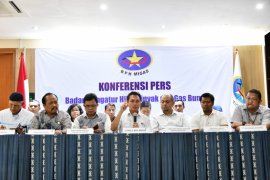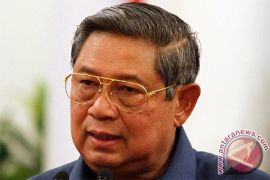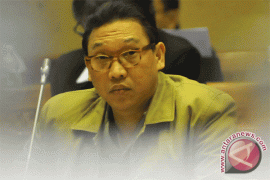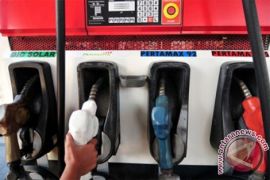"The limitation of diesel oil consumption will have multiplier effects because it will seriously affect the transportation and small business sectors," Alimuddin Rizal Rifai, economic observer of the Stikubank University, said here on Saturday.
The inflation will also be boosted with the electricity tariff increase, household consumption, high price of shallots, chilli and fuel oil issues, he said.
With regard to the discourse on subsidized fuel price increase, Alimuddin said raising subsidized fuel prices was better than limiting the consumption quota.
"The government has to make arrangement with regard to the poor if it decides to increase fuel prices," he said.
The government in the 2013 state budget allocated Rp274.7 trillion in subsidy expenditure with a subsidy for the electricity sector amounting to Rp80.9 trillion and for fuels accounting for Rp193.8 trillion with a total volume of 46 million kiloliters.
The volume of fuel quota could reach 53 million kiloliters if no appropriate policy is taken to control fuel consumption which has continued to increase.
A number of options have surfaced, among others, limiting consumption, increasing fuel oil prices, using RON-90 type of fuel and others.
Economic analyst A. Prasetyantoko of the Atma Jaya Catholic University said raising the price of fuel was the best option, and was better than limiting consumption.
"It is likely that the government will take consumption limitation. But in my opinion the best choice is raising prices," he said.
He said that consumption limitation would require the government to prepare adequate infrastructure with regard to its supervision and control.
"I am afraid that if the government takes the consumption limitation option, the infrastructure is not yet ready," he said.
He said that the government should think of the significant impacts of all available options if it was to control fuel oil consumption.
He said that limitation and price increase would both have impacts on high inflation, but its control efforts would become more significant if the government raised subsidized fuel prices.
Prasetyantoko suggested a moderate price increase by about Rp1,500 per liter from the present Rp4,500 per liter to Rp6,000 per liter.
According to Deputy Chairman of Commission XI of the House of Representatives (DPR) Harry Azhar Azis, the government can raise subsidized fuel oil prices without necessarily providing compensation of cash assistance for the poor, a legislator has said.
"I think it is possible for the government to raise subsidized fuel prices without necessarily providing cash assistance as long as the President is firm with his ministers in dealing with food prices because food is a great factor contributing to inflation," he said.
Harry said that the government had put on discourse subsidized fuel price hike option with a compensation of cash assistance to the poor.
The government thinks of taking this in an effort to control fuel oil consumption which was expected to exceed the quota target.
Regarding this discourse, Harry reminded that in the 2013 state budget there was no allocation for cash assistance. If the government took this option, it should wait until the 2013 state budget was revised.
(A014/B003)
Editor: Jafar M Sidik
Copyright © ANTARA 2013




